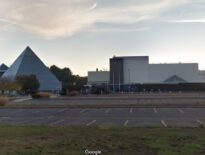Municipal elections across Greater Boston yesterday served as de facto forums on development, among other issues, and voters rewarded both pro- and anti-development candidates.
“Zoning and land use development issues seem to be the preeminent issue throughout Massachusetts,” Secretary of State William Galvin told reporters during an election eve availability. “As I’ve traveled the state over recent months, it seems when you speak to local officials or candidates running for local offices, almost invariably the first thing they talk about is development. In some cases, it’s the lack of housing development, in some cases it’s about the nature of the development that’s going on and the effect it’s having on their existing communities.”
In Cambridge, where a contentious fight over a zoning overlay to help affordable housing developers better compete with market-rate builders looks set to pick up again in the near future, six of the nine candidates for the city’s all-at-large, nine-member city council backed by the “yes in my backyard” group A Better Cambridge bested many of the 11 backed by two groups opposed to the overlay, but were not able to unseat the loudest anti-development voice on the council, environmental activist Quinton Zondervan. First-term councilor Sumbul Siddiqui pulled off a notable victory after losing the endorsement of the development-skeptical Cambridge Residents Alliance after voting to back the redevelopment of East Cambridge’s former Sullivan Courthouse by Leggat McCall Properties. A Better Cambridge and the Cambridge Residents Alliance both endorsed one candidate who lost and one candidate who won last night.
In Newton, where a string of large development proposals along Washington Street and near Route 128 has divided the city, candidates backed by pro-development group Engine 6 took all six at-large city council seats where the group had made an endorsement, out of eight total. In the city’s eight ward races, the group saw three of its and five endorsed candidates win, while the anti-development activists of Rightsize Newton saw two of their four endorsed candidates win.
Incumbent Somerville Mayor Joe Curtatone beat Marianne Walles, who criticized the mayor’s welcoming of hundreds of new luxury housing units at Assembly Row and attacked him for taking campaign contributions from real estate interests. Walles managed to collect just under 40 percent of the vote to Curtatone’s nearly 60 percent, down from his just over 70 percent take in the 2017 municipal election. The four at-large city council candidates backed by pro-housing group Somerville YIMBY also won or retained seats.
Medford Mayor Stephanie Muncini-Burke lost her seat, 6,281 votes to 6,927, to challenger Breanna Lungo-Kohen. Lungo-Kohen had attacked Muncini-Burke over the amount of development under her administration, with large luxury housing projects coming in for special criticism. Opposition to a proposed rezoning of the city’s Mystic Avenue area to allow for more housing development forced Muncini-Burke to shelve the plan earlier this year.
In Revere, Mayor Brian Arrigo squeaked out a win over challenger and former mayor Dan Rizzo with 51.8 percent of the vote. Rizzo had promised a two-year moratorium on new multifamily development. Revere Beach has seen hundreds of new units built or under construction in recent years.
Finally, pro-housing forces in Salem received a spark of good news with the election of candidate Ty Hapworth to one of four at-large seats on the city council while at-large Councilor Elaine Milo was defeated. While Mayor Kim Driscoll has championed measures like legalizing the construction of accessory dwelling units and rezoning vacant downtown properties for housing, the state’s requirement that city councils and town meetings approve zoning changes by a two-thirds majority has seen her signature initiatives shot down despite commanding at least six votes on the 11-member council. Gov. Charlie Baker has frequently cited development battles in Salem as a reason why the legislature should lower the threshold using his Act to Promote Housing Choice, however anti-development voices in some towns have stalled the legislation on Beacon Hill.
The State House News Service contributed to this report.
Updated 1:53 p.m. Nov. 6, 2019: An earlier version of this story incorrectly characterized an election promise of Revere Mayor Brian Arrigo. His challenger proposed a two-year moratorium on apartment development.




 |
| 

